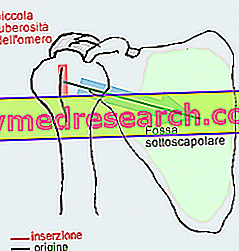
Sleep is a natural mechanism common to all mammals. In the beginning, it was considered a necessary process for brain rest; today we know, however, that some regions of the brain are more active when sleeping than in the waking state.
Sleep, therefore, can be defined as a period of diminished motor and perceptual activity that follows a circadian rhythm. During this "suspension", the processes of vegetative life remain active: one continues to breathe, the heart does not cease to beat, the blood circulation does not stop and the production of hormones does not stop. Even perception is not absent, as a person can be awakened by a sound or tactile stimulus and occasionally muscle activity can occur (for example, when changing position in the bed).
Many theories have been put forward to explain the physiological role of sleep . Some researchers believe that the function of sleep is mainly to restore the body to recover the energy expended in daytime activities. Other experimental evidences have shown that night rest can facilitate the storage of useful information acquired during waking and helps to consolidate lived experiences. Moreover, recent data demonstrate the implication of sleep in the immune defense mechanisms : some animals, deprived of rest for a long period, in fact, proved to be more easily subject to infection.



